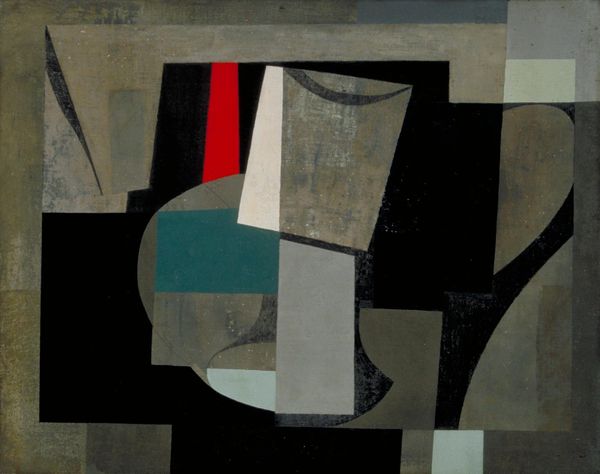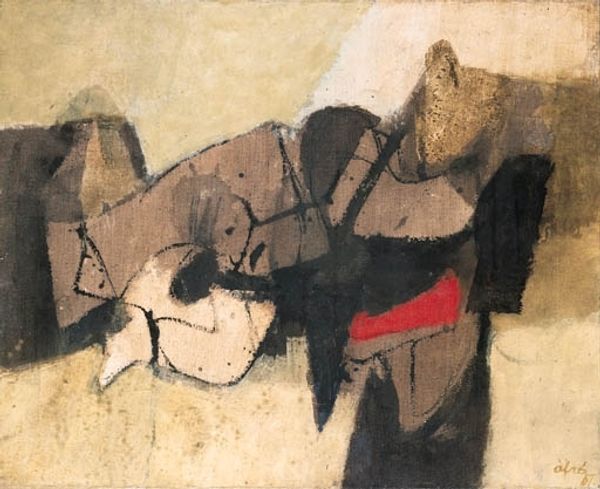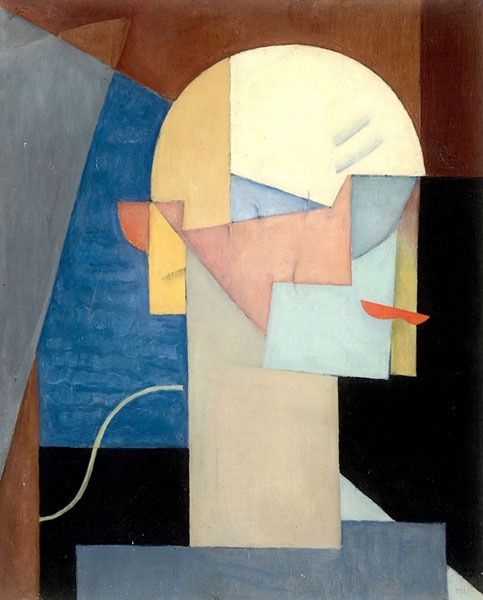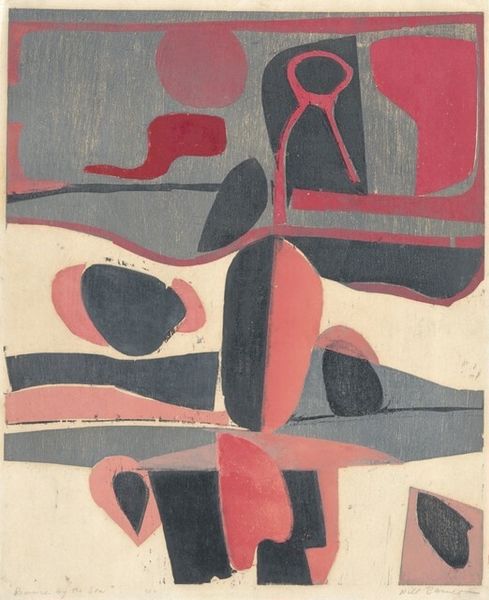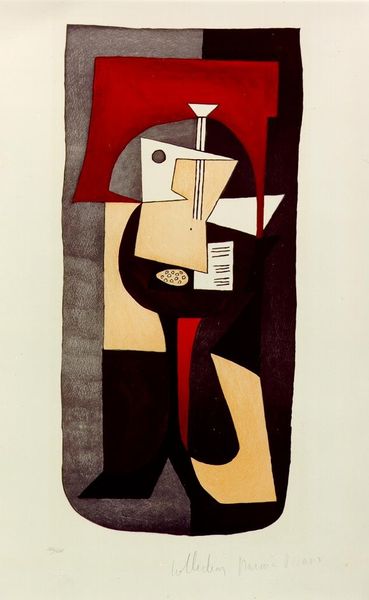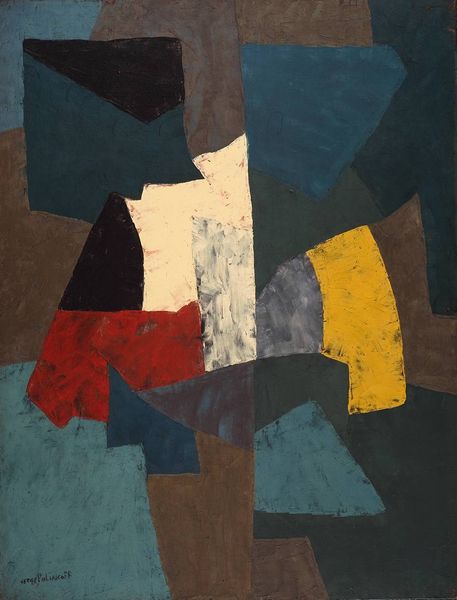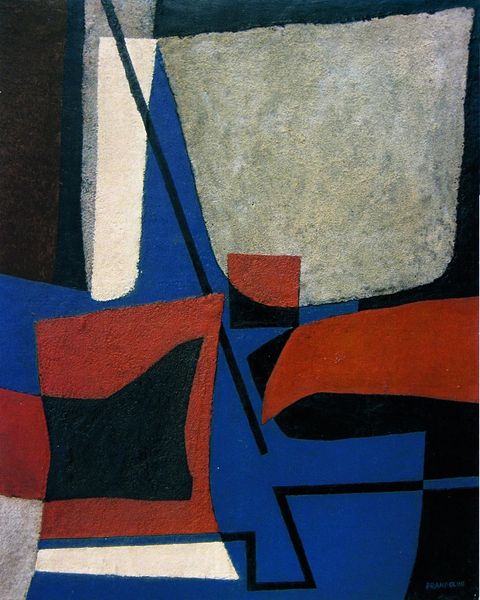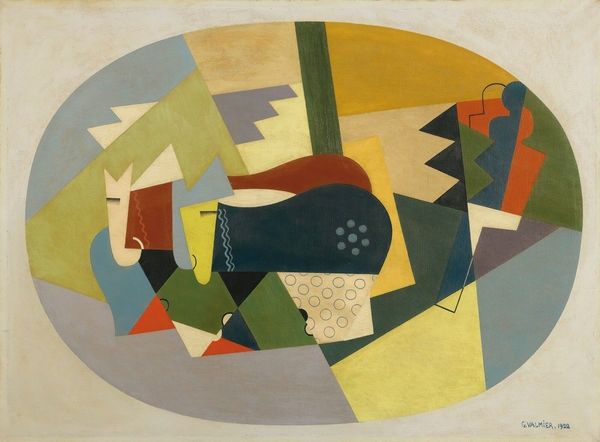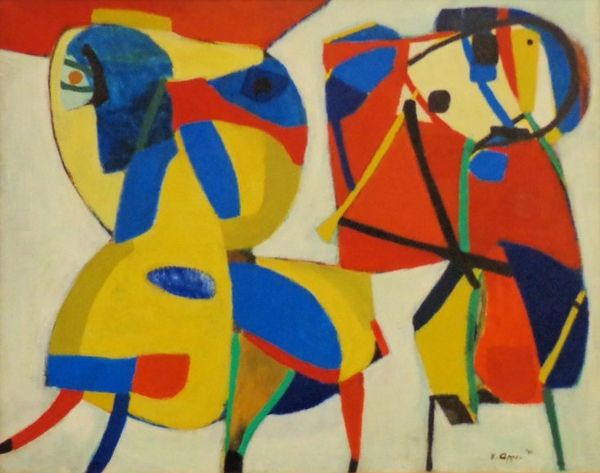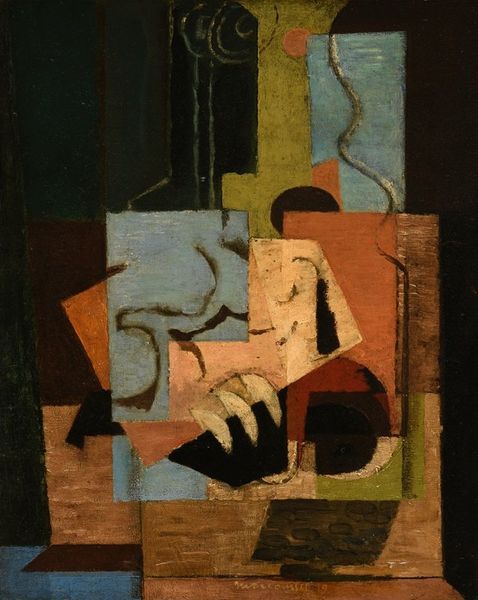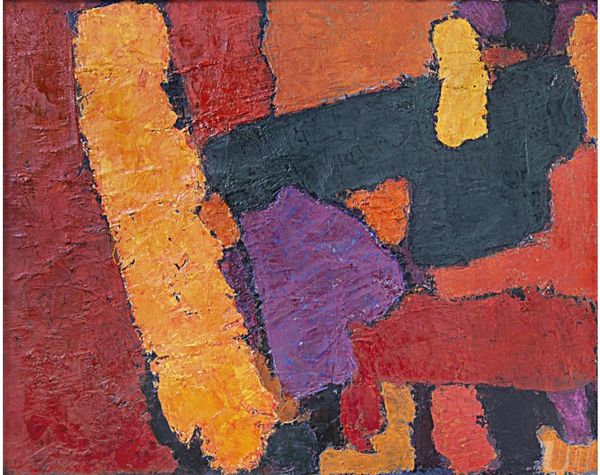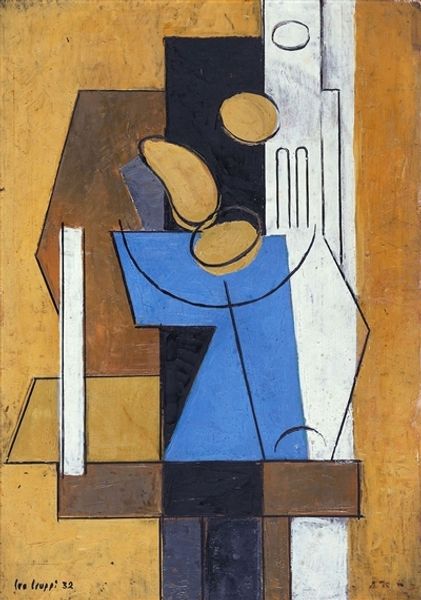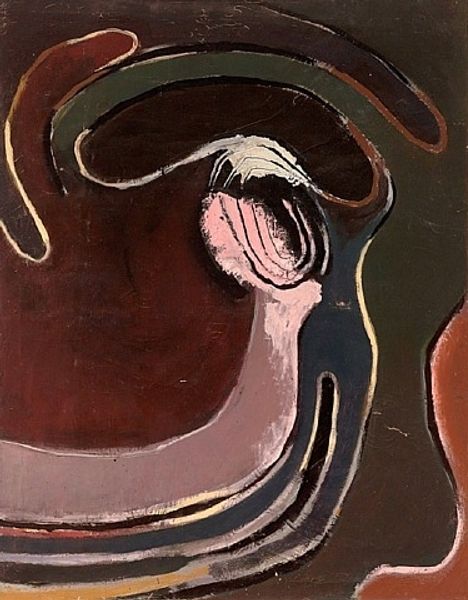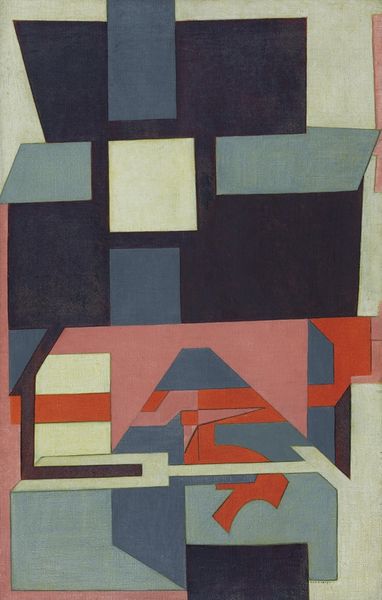
Copyright: Afro,Fair Use
Editor: Here we have Afro's "Abstract Composition" from 1975, rendered with acrylic paint. There's a real earthiness to its tones that gives it a grounded feel. How do you interpret this work? Curator: Well, looking at this piece, I'm struck by how it participates in a larger conversation about the role of abstraction in the post-war era. Abstract Expressionism, particularly, was deeply embedded in Cold War politics. How does this painting, with its controlled forms, perhaps subtly challenge the heroic individualism often associated with its American counterparts? Editor: I hadn’t thought about that angle! It does seem less chaotic than some Abstract Expressionist works I’ve seen. Curator: Exactly. And the geometric shapes, while abstract, feel almost architectural, perhaps referencing a yearning for order amidst social upheaval. I wonder what Afro was trying to express about the socio-political context of Italy at that time through this careful arrangement. How does it feel to you in terms of gendered perspectives – does it speak in a particularly male or female coded language? Editor: That's a challenging question. I initially saw it as neutral, but thinking about it now, perhaps the defined shapes could be interpreted as a kind of restrained masculinity? Curator: Precisely, and consider the historical backdrop. Does this restraint challenge or conform to traditional gender roles present within the Western European context of the 70s? The ambiguity is fertile ground for critical examination. Editor: I see what you mean. Viewing it as a dialogue with the artistic and political climate adds so much more depth than I initially realized. Thanks for sharing your perspective! Curator: Absolutely. Art like this invites us to continuously re-evaluate the narratives we tell ourselves about history and identity.
Comments
No comments
Be the first to comment and join the conversation on the ultimate creative platform.
